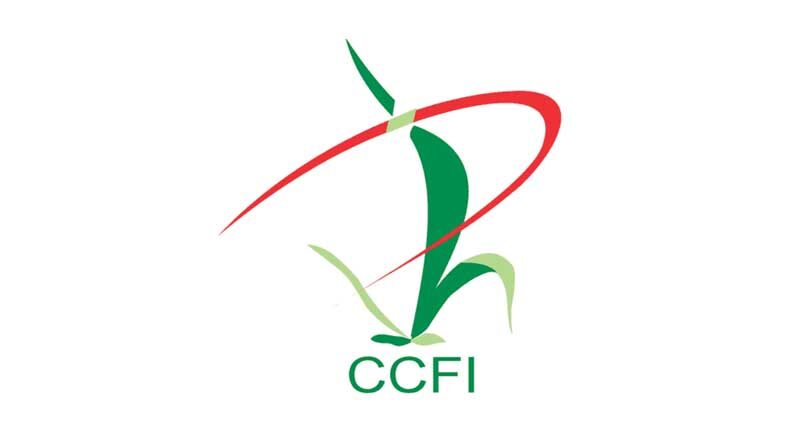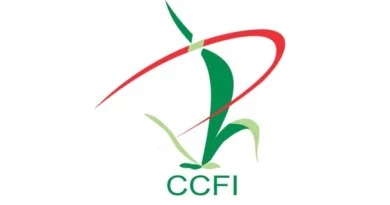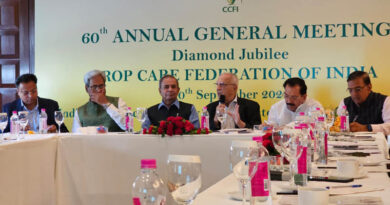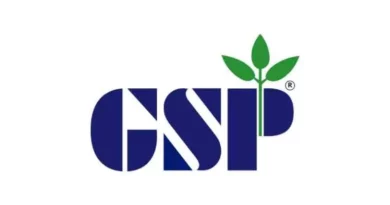Making India an Agrochemical Manufacturing Hub: CCFI
28 October 2021, New Delhi: India today is the fourth largest manufacturer of Agrochemicals in the world. Over the years, the Indian agrochemical industry has grown exponentially not only to meet the domestic demand but exporting over ₹30,000 Cr worth of pesticides of global standards to over 130 countries, mentioned Dr Ajit Kumar, Head, Technical Committee, Crop Care Federation of India during INAE Engineers Conclave 2021. About 75% of CCFI member companies having invested huge amounts to bring in this growth and are involved in direct manufacturing of Technical grades and intermediates.
The situation in China is worsening and gives indian manufacturers a good opportunity. Many raw material suppliers across various provinces in China have stopped manufacturing due to recent introduction of power curtailment norms resulting in limited production. All power consuming plants have been asked by the Chinese government to operate on very low capacity to contain CO2 in the environment.
“This is the opportune time to attract major investments in India.” However, Dr Ajit Kumar expressed serious concern on certain impediments faced by the indigenous manufacturers.
Imports have grown exponentially in the last one year to ₹12,410 cr (2020-21) from ₹ 9,090 cr (2019-20). An increase of 37% has been recorded mostly from China. Since major MNCs have plants in China, the import of ready made formulations is on the increase and now constitutes to 53% of total imports, rest being technicals and intermediates. Globally, generic molecules have over 65% of market share, the cost of manufacturing similar molecules is just 30-35% of the original supplier which is a great benefit for the Indian farming community. Apprehension is also expressed on the imported product’s quality as technical used could be of expired material which is neither sampled or tested during import. Traders are managing to bring in large quantities for resale though it is mandated that imports are only for own captive consumption. Therefore, the import of formulations without registering Technical or otherwise should be stopped to encourage Indian manufacturers.
The proposal of banning 27 pesticides is a major impediment for the Indian agrochemical industry. Of these 17 molecules are being defended by Indian Companies as these pesticides have been in use for decades, found efficacious and manufactured indigenously matching all quality parameters. The ban would deprive the farmers of over 130 formulations which are tried and tested and accepted by the farming community. The rationale of ban by other countries is illogical and incomparable, as we have different agro climatic conditions. This would discourage further investment in this Champion sector.
Lastly another aspect plaguing the Indian industry is the implementation of Pesticides Management Bill 2020 (PMB2020) which primarily seeks to criminalise business operations ever for a minor offence contrary to the government’s policy of Ease of Doing Business. The financial compensation clause proposed would be an unnecessary harassment of genuine players in their industry. “We are confident that the standing committee on Agriculture, would review all these aspects before being passed by the both the Houses of Parliament” said Dr Ajit Kumar.
“We the CCFI members sincerely appreciate the vital initiative taken by thr Honourable Prime Minister towards nation building by emphatically focusing on achieving self reliance through Make in India policy . Our members are fundamentally involved in manufacturing Technical grade and formulations for crop protection and see investments to the tune of ₹10,000 Cr in the coming 5 years provided Indian Government is supportive of our move. This industry today has reached a turnover of ₹55,000 Cr. We can certainly compete China and gain manufacturering leadership in agrochemicals once this industry establishes critical manufacturing capacities through inclusion in the Production Linked Incentive (PLI) scheme” reiterated Mr Harish Mehta, senior advisor, CCFI.















